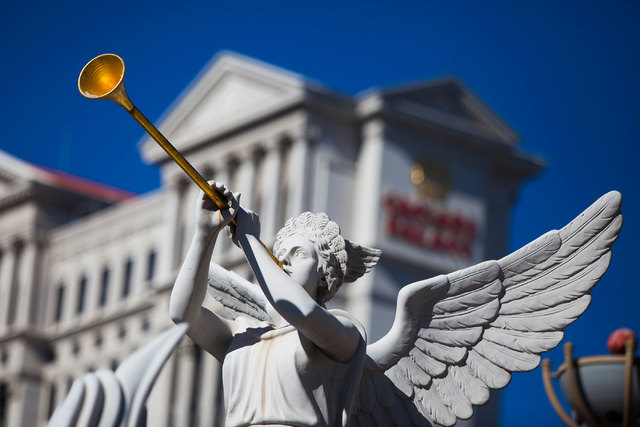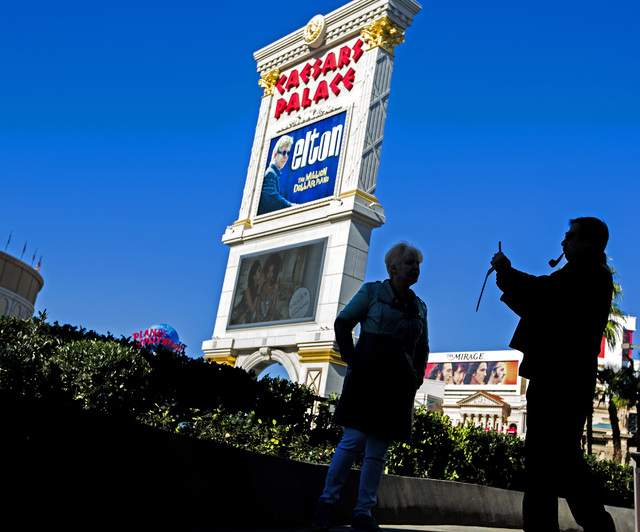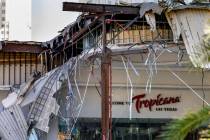Wall Street service warns Caesars restructuring will be ‘drawn out’ process



The efforts by Caesars Entertainment Corp. to restructure 81 percent of its gaming industry-high debt will be a “drawn out” process, a Wall Street ratings service warned investors Thursday.
Caesars placed its largest operating division into a pre-packaged bankruptcy last week in Chicago with a reorganization plan than was agreed upon by 80 percent of the company’s senior bondholders.
However, Caesars second-tier bondholders filed a separate involuntary bankruptcy a few days earlier in Delaware. The company is also facing lawsuits in New York and Delaware over its restructuring efforts by lenders and bondholders.
Fitch Ratings Service analyst Alex Bumazhny told investors the restructuring of Caesars Entertainment Operating Co., which will eliminate almost $10 billion of the division’s $18.4 billion debt load, wasn’t a simple fix.
Late last week, a federal judge in New York ruled the company violated federal law when it transferred ownership of several casinos into a new operating division while several first lien lenders said they weren’t in favor of the reorganization.
“We continue to hold that the CEOC bankruptcy will be protracted given the complexity of the capital structure, the inter-company asset transfers and sales and the contentious dealings with creditors to date,” Bumazhny said.
A Caesars spokesman was unavailable for comment.
The reorganization came about after several months of negotiations between Caesars officials and the company’s primary bondholders and lenders. Caesars has companywide long-term debt of $22.8 billion.
Under the company’s bankruptcy plan, Caesars seeks court approval to convert CEOC into a publicly traded real estate investment trust. CEOC controls Caesars Palace, Caesars Atlantic City, Harrah’s Reno and more than a dozen regional properties.
The REIT concept would split CEOC into two companies, including one owning real estate for many of the company’s casinos. A second company would manage the properties and pay a rent to the ownership company.
FIRST-LIEN LENDERS BALK
Bumazhny said he wasn’t surprised several first lien lenders are now balking at the agreement. The proposed recovery includes $1.3 billion of new debt, and the analyst said he would give the division a negative rating after accounting for the lease payments and other expenses.
“The term loans’ cash recovery mostly hinges on Caesars selling $2.6 billion of Caesars Palace mortgage and debt to third-party investors, all compounded by Caesars asking the lenders to release their parent guarantee,” Bumazhny said.
Caesars accumulated the bulk of its debt in 2008 when it was acquired by private equity companies TPG Capital and Apollo Global Management in a $29 billion leveraged buyout.
Bumazhny warned the private equity firms might have to “dilute their positions in Caesars” in order to make concessions to some angry creditors.
The analyst did have some good news for Caesars investors: the restructuring “as not necessarily another Dynegy,” in reference to Dynegy Inc, a Houston-based energy company that went through a complicated year-long bankruptcy restructuring in 2012.
JUNIOR CREDITORS REQUEST EXAMINER
Bumazhny was unsure if a Delaware judge would grant the request of junior level creditors to appoint an examiner for Caesars. The involuntary filing accused Caesars of having “looted” the best properties from the parent company by removing them from the restructuring puzzle.
Caesars Growth Partners, formed less than two years ago, is 58 percent owned by Caesars Entertainment. It owns six properties and the company’s interactive gaming division. Caesars Growth Partners would merge back into the parent company after the bankruptcy is concluded to provide Caesars $1.7 billion in reorganization cash.
“We think the situation is less clear cut relative to Dynegy, where the valuation shortfall was much more egregious,” Bumazhny said. “We generally think that the valuation ascribed by Caesars to the major assets that were sold or transferred was on the light side.”
He said Caesars would have problems selling casinos to outside parties because the properties would then be removed from the company’s 45 million-member Total Rewards player loyalty program.
Caesars operates 40 casinos in 14 states and Canada, including 10 on or near the Strip. The 4,250-room Caesars Palace is the only Las Vegas property covered by the CEOC bankruptcy filing.
A judge in Chicago granted a series of routine motions last week, allowing the casino operator to pay employees and critical vendors and maintain its customer rewards program.
Company officials have said the bankruptcy filing and financial restructuring will not affect day-to-day operations.
Contact reporter Howard Stutz at hstutz@reviewjournal.com or 702-477-3871. Find him on Twitter: @howardstutz
Related
Caesars expected to miss $224 million interest payment
Caesars moves to restructure $24 billion debt
Caesars will talk with bank creditors to address debt


















